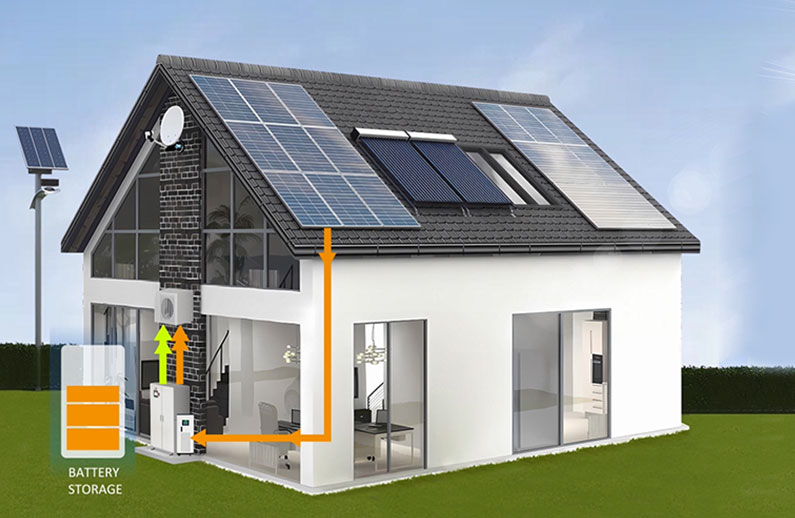How Big of an Inverter Do I Need to Run a Whole House?
Aug 06, 2024
Choosing the right size of an inverter is a critical decision when planning to power your entire house with solar energy. Inverters serve as the bridge between your solar panels, which produce DC (direct current) electricity, and your home appliances, which run on AC (alternating current). Properly sizing your inverter ensures efficient energy conversion and reliable operation of your solar PV (photovoltaic) system. Let’s delve into the factors that determine the appropriate inverter size for a whole-house setup.
Understanding Inverter Sizing
1. Assess Your Household’s Power Requirements:
The first step in determining the size of your inverter is to assess your household’s energy needs. Make a list of all the appliances and devices you plan to power simultaneously, along with their respective wattages. This includes essential appliances like refrigerators, air conditioners, pumps, and other high-power devices. Calculate the total wattage required during peak usage periods to establish your system’s maximum load capacity.
2. Consider Surge Power Requirements:
Many appliances, such as refrigerators and air conditioners, require additional power when starting up. This initial surge of power, known as starting or surge wattage, is higher than their normal operating wattage. It’s crucial to account for these peak demands when sizing your inverter to ensure it can handle sudden power spikes without causing system overload or inefficiency.
3. Determine Inverter Capacity:
Inverters are rated based on their maximum continuous output power in watts (W). To determine the appropriate size for your whole-house solar system, choose an inverter that can comfortably handle your calculated peak load. Industry best practices often recommend selecting an inverter with a capacity around 20-30% higher than your maximum load to accommodate future expansions and ensure reliable performance under varying conditions.
Benefits of Hybrid Solar Inverters
Hybrid Solar Inverters offer additional functionalities beyond standard inverters. These versatile systems integrate seamlessly with battery storage solutions, allowing you to store excess solar energy for later use. Hybrid inverters enable you to maximize self-consumption of solar power, enhance energy independence, and provide backup power during grid outages. They are particularly beneficial for homeowners looking to optimize their solar energy usage and reduce reliance on traditional grid electricity.
Choosing a Reliable Manufacturer
Selecting a reputable low frequency inverter factory is crucial to ensure the quality and reliability of your solar PV system. When choosing an inverter, prioritize factors such as product warranties, reliability ratings, and compliance with relevant safety and performance certifications. This approach ensures that your solar energy system operates efficiently and durably over its lifespan.
Choosing the right size of whole house solar inverter is essential for the success of your residential solar installation. By carefully assessing your household’s energy requirements, considering surge power needs, and selecting a high-quality inverter from a reputable manufacturer, you can optimize the performance and longevity of your solar PV system. For personalized advice and assistance in selecting the right inverter for your home, consult with a qualified solar energy professional.


 Network Supported
Network Supported